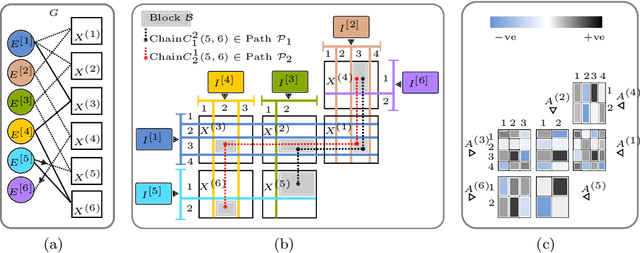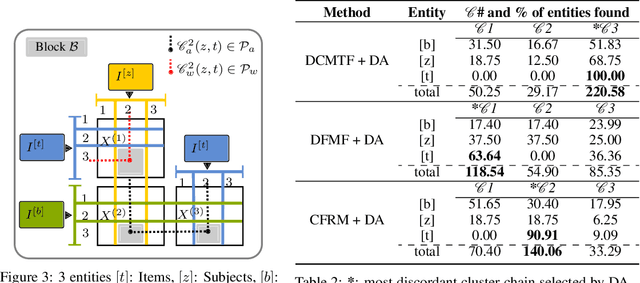Multi-way Clustering and Discordance Analysis through Deep Collective Matrix Tri-Factorization
Paper and Code
Sep 27, 2021



Heterogeneous multi-typed, multimodal relational data is increasingly available in many domains and their exploratory analysis poses several challenges. We advance the state-of-the-art in neural unsupervised learning to analyze such data. We design the first neural method for collective matrix tri-factorization of arbitrary collections of matrices to perform spectral clustering of all constituent entities and learn cluster associations. Experiments on benchmark datasets demonstrate its efficacy over previous non-neural approaches. Leveraging signals from multi-way clustering and collective matrix completion we design a unique technique, called Discordance Analysis, to reveal information discrepancies across subsets of matrices in a collection with respect to two entities. We illustrate its utility in quality assessment of knowledge bases and in improving representation learning.
 Add to Chrome
Add to Chrome Add to Firefox
Add to Firefox Add to Edge
Add to Edge